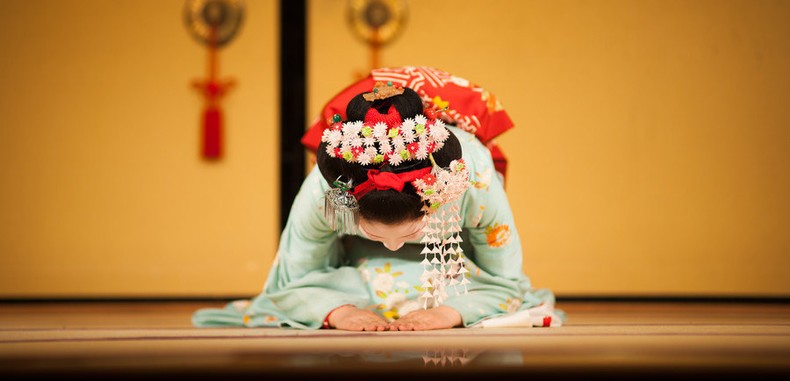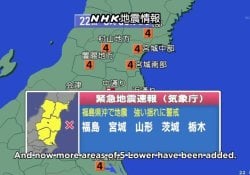We know that in the Japanese language there are several ways to thank like arigatou But have you ever thought about how to respond to a thank you in Japanese? In this article, we are going to see different ways of saying "You're welcome" in the Japanese language.
when listening to a arigatou [ありがとう] the most common, polite and formal response is to say 1TP2 9Te3 douitashimashite [どう致しまして] which is the closest we have to Portuguese "You're welcome". What are other ways to say thank you in Japanese?
Remember if! Never learn Japanese by studying single words. If you are confused on the correct order or way to study the Japanese language. We recommend reading our: Study Guide for Learning Japanese.
Índice de Conteúdo
Word Origin for Douitashimashite
The word 1TP2 9Te3 douitashimashite literally means "I didn't really do anything anyway, so don't mind". The origin of the word 1TP2 9Te3 douitashimashite can be explained as follows:
- Dou [どう] comes from the expression owneryouni [どの様に] que significa de qualquer maneira;
- Itashimashite [致しまして] comes from the verb itu [致す] which is the polite and keigo form of the verb do [する] que significa fazer;

The expression douitashimashite also conveys the idea of "Anytime", "Of course", "Don't worry", "No problem", "It was nothing", "It was my pleasure", I'm happy to help". certain situations just swallow the I give and they just say You're welcome [いたしまして].
Other ways to say “you’re welcome” in Japanese
Despite 1TP2 9Te3 douitashimashite be the most formal and polite way of saying "you are welcome" In japanese. There are several other informal or casual expressions to use with friends and even acquaintances. Let's see a small list below:
Responsive Table: Scroll the table sideways with your finger >>
| Portuguese | Japanese | Romaji |
| I thank you (formal with colleagues) | こちらこそ | Kochirakoso |
| No, no/no problem, easy (informal/colleagues) | いえいえ | Yeah yeah |
| Nothing, anything just talk | ううん、いつでも声かけて | uun, itsudemokoekakete |
| don't be so formal with me | 遠慮しないで | enryoshinaide |
| I'm happy to help (among friends) | 助けになれて 良かった | tasukeninarete yokatta |
| It's my obligation (when answering a boss) | 恐縮です | kyoushukudesu |
| No problem, don't worry | 大丈夫 | daijoubu |
| It was nothing, totally no problems | 全然 | zenzen |
| It was nothing [special] (kind of informal and rude) | 別に | betsuni |
| It was nothing (among friends it can be rude) | いいよ | iiyo |
Below is a video showing these different ways of saying nothing in Japanese:
other situations of thanks
If you are among close friends, you can just say yes using ha-i (はーい) or un (うん) and sometimes you can make jokes like kore takaiyo (これ高いよ) which means it will be expensive!
We recommend analyzing the situation well before thanking in any way, since depending on the situation or the person to whom you are going to say "you're welcome", you can seem rude according to the expression used. You can make combinations like iie, kochirakoso (no, I appreciate that).

You can also say nothing by saying a thank you (arigatou) depending on the situation like shopping in a store both people thank you. Sometimes you don't have to answer anything either, just bow and walk away.
Always remember to put a smile on your face to make your words sound more friendly. Hope you enjoyed the tips in this article! If you liked it, share it with your friends and leave your comments!どういたしまして!



